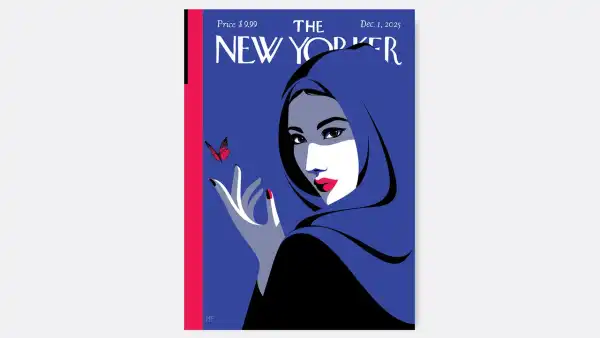
On Monday, an eyewitness video obtained by TMZ circulated on social media, showing Jahseh Onfroy, better known as the artist XXXTentacion, slumped in the driver’s seat of his black BMW outside of a motorcycle dealership in Deerfield Beach, Florida. The Broward County Sheriff’s Office confirmed that Onfroy had been shot in broad daylight. He was confirmed dead at a local hospital a short while later. The killers made off with a Louis Vuitton bag.
Onfroy lived his short life chaotically, violently. And his jagged confessional music, which enraptured millions, sprang nakedly from that violence. Usually, when musicians die as young and as tragically as Onfroy, they are the subject of hagiography. We lament the beauty gone, think forlornly on the future art the cruel present has stolen. The death of Onfroy and that of Lil Peep, in November of last year, are alarming signs of the recklessness governing the new-money life styles of certain young Internet celebrities, who are the inheritors of America’s dangerous crises of mental health, drug abuse, and masculinity. But reflecting on Onfroy’s legacy also requires a frank confrontation with the malignity he inflicted.
Onfroy was born in Plantation, Florida, in 1998, and raised in Broward County, primarily by his grandmother. His mother was a teen-ager when she had him, and she drifted in and out of his life, bringing lavish gifts and leaving sizable voids. Onfroy said, in an interview with the podcast “No Jumper,” in 2016, that he would instigate fights in grade school as a ploy to get her attention. In a recent interview with the Miami New Times, he told the reporter Tarpley Hitt that his mother once gave him permission to retaliate against a female classmate who was hitting him as a form of juvenile flirtation. In response, he “slapped the shit out of her and kneed her.” Onfroy said that his mom was surprised; she “realized how seriously I took her.” Later, he would get her name—Cleopatra—tattooed on his chest.
Onfroy spent his late childhood and adolescence in and out of juvenile-detention centers, for charges ranging from robbery to assault. He spent the rest of his time in the basements and studios of friends, where he assembled the scraps and fragments of his psyche into paeans to disaffection, to his depression, to Xanax and the numbing it brought, and to women, whom he viewed as devourers of his soul. (“Only time I feel pain, when I’m feelin’ love.”) He started uploading music to SoundCloud, in 2013. His early songs were howls, his rapping agile but his voice cracked; the production was bruised and unpolished. Onfroy seemed to add to his catalogue impulsively. By the time of his death, he’d made loosies, mixtapes, a smattering of features, and two albums, including the last one, “?,” which débuted at No. 1 on the Billboard charts.
Among the ranks of the SoundCloud rap generation, there are pranksters, heartthrobs, and dilettantes, but Onfroy clawed to the surface as the genre’s wretched bard. He stalked the shadows of metal and emo and punk rock, and fleeced rap of its devotion to materialism, focussing instead, obsessively, on existential crisis. There wasn’t a dark thought that he kept hidden. He unleashed a tremulous bombardment of pessimism, occasionally interrupted by feral gestures of overwhelming helplessness. “Here is my pain and thoughts put into words. I put my all into this, in the hopes that it will help cure or at least numb your depression,” he speaks, on the introduction to his first album, “17.” He peddled the seductive notion that depression is license to hurt people, perhaps because it was his own personal justification. He wrote ditties threatening suicide if a partner left him, which I would hear blasting from cars on my block. Throughout his music, there are presages to an early death.
Onfroy purposefully collapsed the real-life pain he wrought on others into his artistic persona. The art for “Look At Me!,” a breakout single, featured one of his mugshots. It climbed the charts while he was in jail on charges of false imprisonment, witness tampering, and the assault and battery of a pregnant woman, his former girlfriend. (When she established a GoFundMe campaign for an operation to fix her broken orbital socket, people calling themselves XXXTentacion fans targeted her until the Web site temporarily shut it down.) To promote his music on “No Jumper,” Onfroy bragged about beating a gay peer at a detention center until they were both covered in blood. XXXTentacion lived his art, which some would call a mark of authenticity. He was admired by J. Cole and advocated for by Kendrick Lamar, whose label, TDE, threatened to remove its music from Spotify when the service briefly stopped promoting XXXTentacion on its playlists as part of its hateful-conduct policy. Many artists have memorialized him in recent days, including Kanye West, whose own new album, “Ye,” includes disturbing musings (“I thought about killing you”) that sound influenced by XXXTentacion. Onfroy’s victims are sacrifices, the thinking goes, on the pyre of raw art. The immaturity is part and parcel of the genius. The only unforgivable thing would be to be a hypocrite.
In remembrances of Onfroy in recent days, some have argued that, however grossly misguided his behavior, he provided his listeners with invaluable solace and understanding. Even that is a simplification. He could be strangely encouraging, uploading inspirational homilies to fans he knew were struggling with issues of mental health, which his followers have clung to in the days since his death. (“If I’m gonna die or ever be a sacrifice, I want to make sure that my life made at least five million kids happy,” he said in an Instagram Live video posted late last year.) But he could also be despotic. At the Rolling Loud Festival in California, in 2017, he beat one fan with a microphone. On Instagram, he taunted people who challenged him about domestic violence. Last year, in an episode of particularly cruel chicanery, he uploaded a video in which he appeared to be hanging himself from a tree, sparking an online panic. His fans, sometimes out of ignorance, but most often, I think, out of desperation, loved him. They propped him up, voting him to the XXL Freshman List of 2017.
I’ve counted myself lucky to have grown up before XXXTentacion’s vicious ironies, knowing that as a teen-ager I may well have been enthralled by his lazy groans on tracks like “Moonlight.” But how much better did the teen idols of older generations really treat us? Music fandom is a passion that discourages rational thinking, and some artists take advantage of that. The fans do the rest. (On Tuesday, Onfroy’s former girlfriend posted a message on Instagram saying that she had been driven out of a vigil for him in Florida.) I am not sure that it is fruitful to patrol how people will remember XXXTentacion. If Onfroy is made a saint, he will join a pantheon that is plenty confused already. If people stomp on his name, I understand. Last October, he’d signed a new deal for a reported six million dollars. He died on the brink of something. We just don’t know what.
Sourse: newyorker.com






